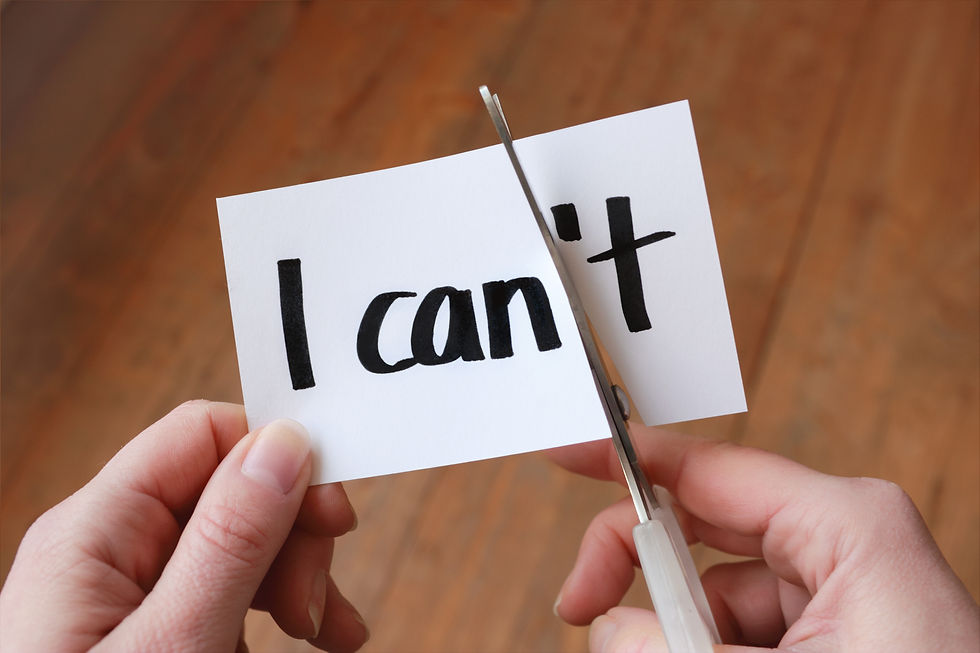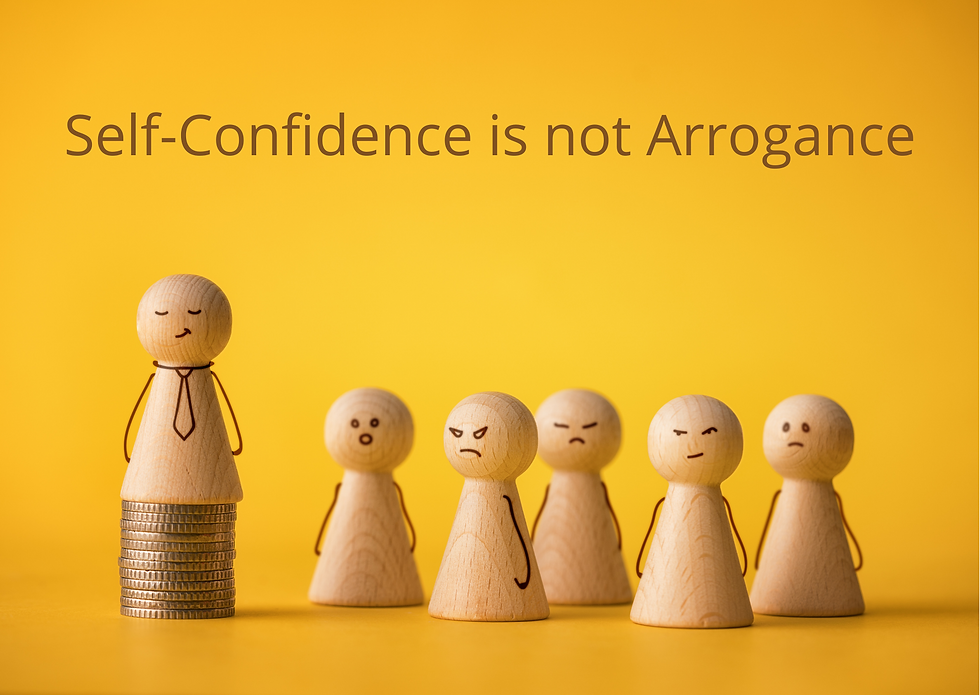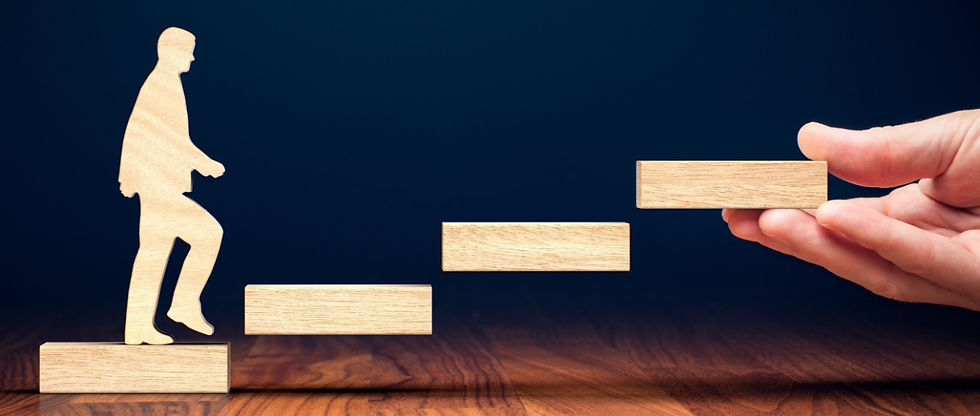Self-Confidence - have a go...just like you used to
- Mary Ely
- Oct 19, 2022
- 3 min read
RocheMartin defines Emotional Intelligence by a set of 10 competencies and this is one in a series of blogs covering each one: Why develop Self-Confidence and what is it exactly?
Why develop Self-Confidence?
RocheMartin (experts in measuring and developing emotional intelligence) put it nicely:
Self-Confidence is the most important factor in determining how you think, feel and behave. Your level of self-confidence largely determines what you make happen in life.
I think of Self-Confidence as that beautiful feeling when you just feel sure. You know that whatever happens, you’ll be ok, you'll handle it, you'll cope. Even if things don’t go to plan.
...and that means you have a go...just like you used to as a child.

As a child, when you decided to take control of feeding yourself, you probably missed your mouth a lot. Ending up with food in your ear, up your nose, on the floor - mostly anywhere other than in your mouth.
You weren't hampered by feeling unconfident about your ability to feed yourself.
You didn’t stop having a go just because you didn’t succeed the first, second…or 50th time.
You didn’t stop having a go because you thought you’d
look stupid
be judged badly
be rejected
You didn’t stop having a go because you didn’t think you were enough in some way.
You just had another go...and how liberating is that?!
The difference then was that you were in blissful ignorance of any potential negative consequences or feedback from others or yourself!
...and it's that awareness that starts to erode confidence over time.
We notice and begin to watch out for and focus on the negative things about ourselves and the negative consequences that need to be avoided, rather than just focusing on having a go and dealing with whatever happens.
On the other hand...
When we are self-confident, we can stay calm, have a go and be enthusiastic, which makes life much more simple, manageable, and ENJOYABLE!
...and it means we are more likely to succeed.

Feeling self-confident helps us focus on what we CAN do without distraction and it ‘adds fuel’ to optimism.
Optimism – I’ll find a way
Self-Confidence – I’ll give it a go when I find it.
For example, nobody thought a man could run a mile in 4 minutes until Roger Bannister did it, and then lots of people did.
And confidence is infectious.
We tend to feel safer, reassured and more willing to have a go or take a risk ourselves when we are with people who have deep inner confidence.
If someone who you believe is confident has confidence in you, you are more likely to feel confident in yourself.
…which is why it’s so important for leadership.
So why might you not want to develop self-confidence?
Well, there's one myth that needs busting that comes up a lot with my coaching clients and holds them back:

People often think that being self-confident and admitting that you're good at something will lead to arrogance.
But Self-Confidence is not the same as arrogance and it's normally the people who aren’t self-confident that are arrogant. It’s like they are desperately trying to convince themselves and everyone else that they’re better than they feel.
So remember, you CAN be confident without being arrogant.
What is Self-Confidence exactly?

Self-Confidence is believing that you're good enough to give it a go without worrying about the consequences
As with all the RocheMartin emotional intelligence competencies, Self-Confidence can be broken down into 3 components, which help to pinpoint areas of strength and areas for development.
The 3 components of Self-Confidence are
Self-Liking
You're happy with who you are.
Self-Competence
You think you have the competence for what you need to do.
Self-Assurance
You feel sure that you can be OK. You've got what it takes to be able to figure it out or find a way to cope.
…and
together, that means you’ll always be happy to just have a go!
Which makes sense…particularly if you consider the opposite...
If you’re not happy with yourself or you think you’re not good enough, you’re not going to want to have a go.
How can you develop Self-Confidence?
Coaching is by far the most efficient, effective, engaging, empowering and enjoyable way to build any of the Emotional Intelligence competencies.
Helping you to develop, refine and embed your own personalised strategies for each competency.
Coaching is particularly useful when it comes to Self-Confidence as a coach is not caught up in your life’s story so can help you bust your own internal myths about yourself and your capability.
And this blog contains some ideas for you to experiment with on your own that have worked for me and my clients.

If you’re interested in understanding your level of emotional intelligence using one of the RocheMartin assessments or would like to explore coaching for developing components of it like Self-Confidence, you can book a free call here.
And if you'd like to try out my monthly emails that provide a roundup of my blogs as well as other insights, you can sign up here.



Comments